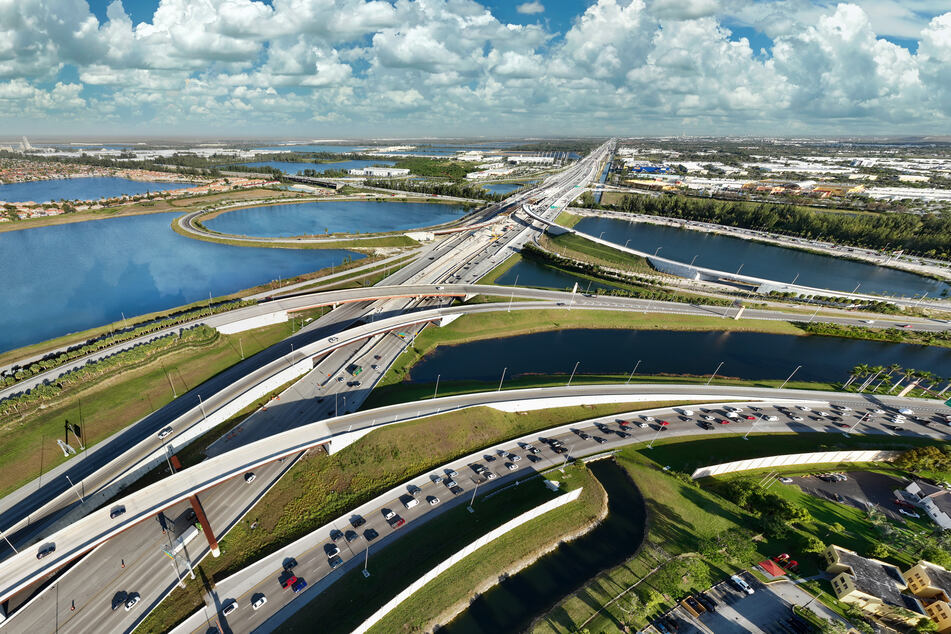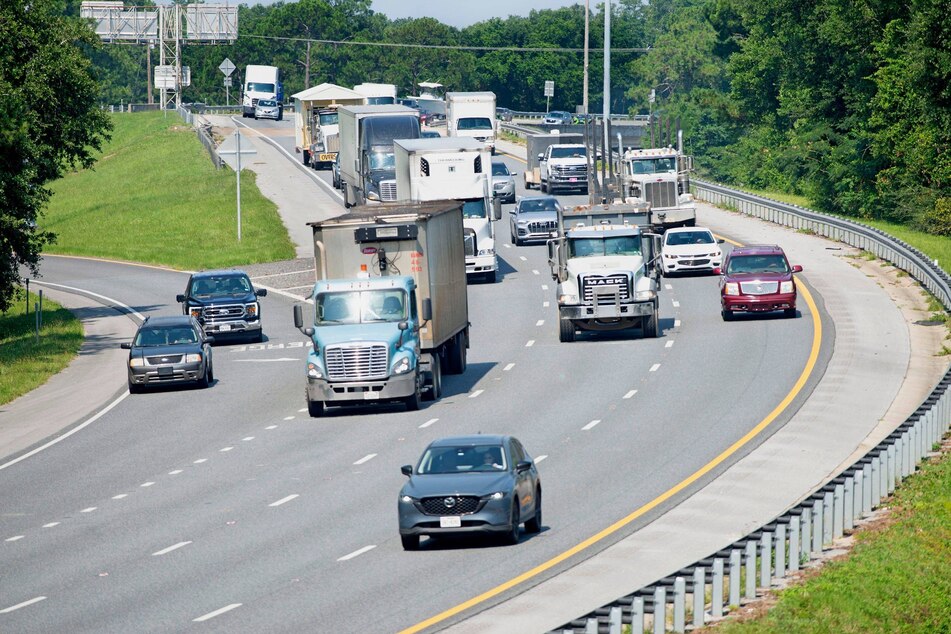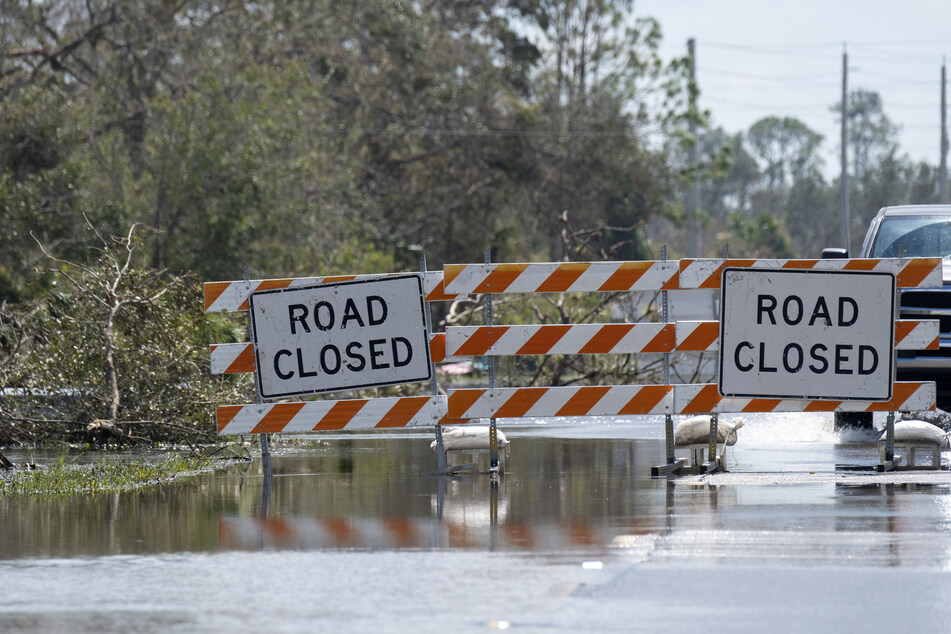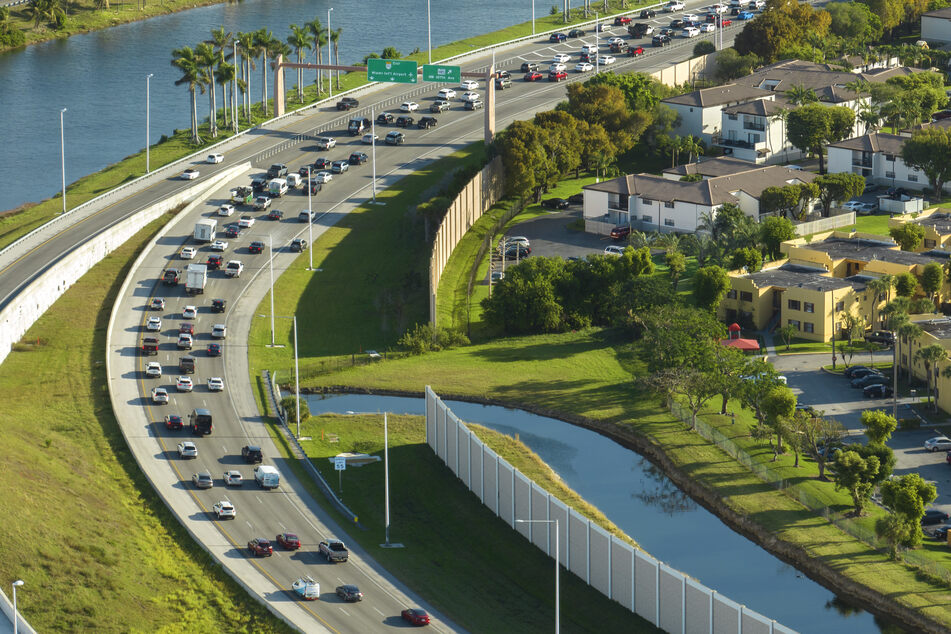Florida becomes only state to turn down millions to lessen emissions
Tallahassee, Florida - Congress in 2021 provided $6.4 billion to states to curb tailpipe emissions and reduce the effects of climate change.

Florida was set to receive $320 million, the third most of any state.
The state Department of Transportation began drafting a plan to add trucker parking at rest stops, which staff said could fix the statewide shortage that kept drivers on the road longer, polluting more, as they searched for a place to stop.
The plan also suggested spending the money on things like electric buses and roundabouts, which reduce the amount of time idling cars sputter out climate-warming emissions at traffic lights.
But last month, the department secretary, Jared Perdue, sent a letter to the US Department of Transportation declining participation in the federal program.
Perdue said in the letter that the program was an example of government overreach that was "the continued politicization of our roadways," echoing statements made by Gov. Ron DeSantis, who has claimed that climate change is "politicization of the weather."
Florida now stands alone as the only state to say it would turn down the money, federal officials told the Tampa Bay Times. Any mention of the plan was wiped from the state’s website.
Florida criticized for refusing to take federal funding

When asked about the removal of the draft documents, a spokesperson for the agency said it took them down after the department’s decision to decline participation in the program.
Even Texas, whose governor often tries to outshine DeSantis on conservative credentials, plans to take its share of $641 million, officials there told the Times.
Environmental experts and some lawmakers say the Florida transportation department’s refusal to take the funding is a flawed decision.
"This is going to be so costly for Florida families and businesses in a growing, dynamic state where we need better transportation," said US Rep. Kathy Castor, a Democrat from Tampa.
The congresswoman told the Times the move is "fiscally irresponsible" and that "Florida looks foolish" to other lawmakers on Capitol Hill.
"We need new leadership at the state level that’s not going to send our hard-earned tax dollars back to Washington," she said.
At least one local Republican lawmaker agreed with the decision to refuse the money. Rep. Laurel Lee, a Republican of Brandon, said accepting the funds would require the state agency to conform to "unrealistic and unfeasible goals."
"The Biden Administration continues to push an overreaching climate agenda on states through unconstitutional regulation and rule making," she wrote in a statement to the Times. "The (Environmental Protection Agency’s) efforts to force electric vehicles do not meet the transportation needs or budgets of Florida families."
Florida's focus is "not reducing carbon emissions"

The state transportation department’s Carbon Reduction Quick Guide, which outlined the plan for the federal money to go toward emission-cutting measures, was available online as late as November. A handful of news outlets had linked to it before its removal.
After speaking with the Times, the Florida transportation department published Perdue’s letter Wednesday morning on their site, replacing the dead link to the deleted draft plan. That draft plan is still accessible on internet archives.
"For transparency and with the decision made to not submit a document for this program, our website was updated to reflect the latest and most up-to-date information, which is why it was replaced with Secretary Perdue’s letter," spokesperson Jessica Ottaviano said.
Rather than accepting the federal money, Perdue wrote in the letter that Florida would focus on building roads and bridges, "not reducing carbon emissions."
While Perdue downplayed climate risks in his letter, the now-deleted documents from within his own agency emphasized bracing "for current and future impacts of climate change."
Perdue cited state data when he claimed Florida has the cleanest air on record, "with emissions continuing to fall as fast as our state grows."
Yet according to the department he oversees, Florida ranks among the 15 states with the highest levels of diesel emissions. The report with that statistic also appears to have been removed from the department’s website.
Texas accepts federal funding as Florida rejects it

The data Perdue cited shows decreases in a handful of air pollutants. But the report did not include a measurement of carbon dioxide, of which the US Environmental Protection Agency will require "continuous measurement and reporting" starting early next year.
Prior to opting out, the department had pinpointed trucker parking as a good use of the federal money. In 2019, 682 million tons of freight were hauled in Florida, the department noted. Nationwide, 98% of drivers reported nearly an extra hour of drive time looking for parking. The more time truckers search for parking, the more they burn fossil fuels.
"Truck parking needs in Florida exceed capacity throughout the state with truckers driving further and longer specifically in search of safe parking," the department noted in its now-deleted plan.
The Florida Department of Transportation also said average commute times have grown in Florida by 11% over the last decade. About 40% of congestion and traffic volume issues in the state are due to roadway capacity. The department also noted that only about 0.5% of Florida’s total motor vehicle registrations are for electric vehicles.
The deadline to accept the funds passed November 15. As of Thursday, no other state had informed the Federal Highway Administration that it would decline the money, a spokesperson for the federal transportation agency told the Times.
Money to pay for the new program comes from the Bipartisan Infrastructure Law passed in November 2021 and makes $6.4 billion in federal funds available over five years across the country. The bill was passed largely along party lines, with just 13 House Republicans crossing the aisle. Only California and Texas were to get more money than Florida.
Texas will use the federal funds for congestion management, public transportation, truck parking, and other projects, said Adam Hammons, a spokesperson for the Texas transportation agency.
Texas and Florida have been prominent laboratories of conservative policymaking, led by two ambitious governors who have competed for the national spotlight. Both states are vulnerable to sea rise spurred by climate change.
Cover photo: IMAGO / Pond5 Images